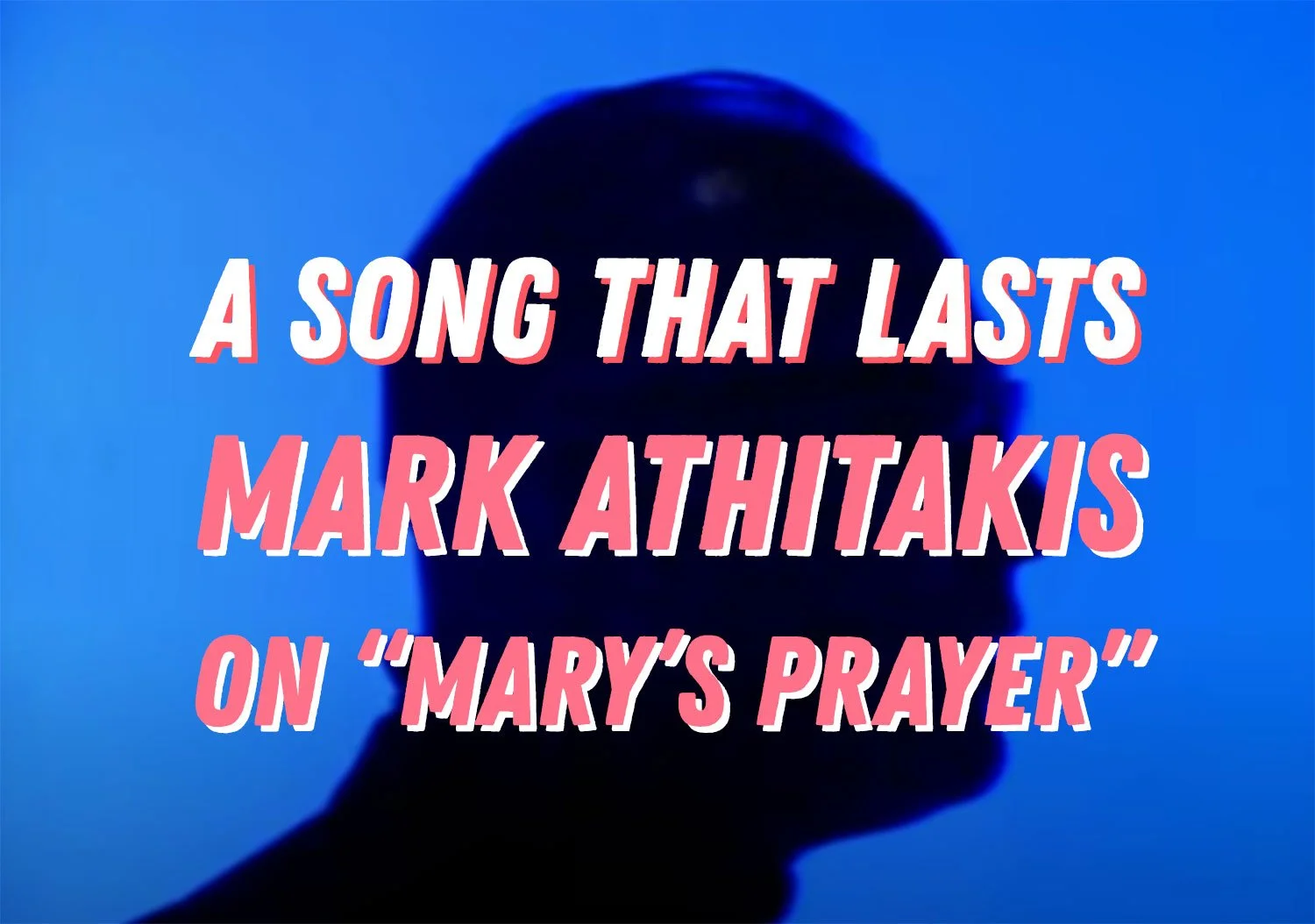Nineteen-eighty-seven was a bad year for mass culture. Nobody holds romantic notions of 1987. You can with 1984 (Top 40’s zenith), or 1991 (the year punk broke), or 2010 (the year of “Telephone,” “Tightrope,” “Power,” and “Fuck You!”). But 1987? Nah. Nobody looking at lists of top-rated TV shows and run-downs of highest-grossing films, or just reading the news, could celebrate it as a landmark moment. In fact, so much was deflating. Ronald Reagan, late into his second term, was showing signs of dementia. His administration continued to bat away talk of AIDS; the Iran-Contra affair alternately bored and exhausted observers, reinforcing Watergate-esque cynicism either way. The Cold War dragged on. Kevin Costner cemented his reign of banal wholesomeness at the multiplex; Bill Cosby did much the same on TV.
The pop charts were no better. The interregnum between Top 40’s zenith and the year punk broke left an opening for, at best, hair metal, and, at worst, cloying adult-contemporary tunesmiths like Richard Marx. Many of the decade’s prominent artists began a downward slide: Madonna, Whitney Houston, Cindy Lauper, and Michael Jackson were all foundering both in terms of sales and quality control. The modern rock chart’s idea of an alternative act was Sting. Even the good stuff came with a tinge of defeatism. Bruce Springsteen recorded an entire album, Tunnel of Love, in which he thought a lot about whether romantic commitment was a good thing and concluded: Eh. Prince released arguably his best album, Sign o’ the Times, which galvanized every good idea he had about funk, rock, God, masculinity, romance, and sex. But its signature track and lead single marked a shift from let’s-go-crazy to let’s-settle-down, because everything was bad or dying; it’s closing decision to “fall in love, get married, have a baby” sounded oddly resigned. Meanwhile, Genesis eased us into that sad, slack year with a particularly egregious blend of pop-prog horseshit called “Land of Confusion”: “My generation will put it right,” Phil Collins lied. “We’re not just making promises / That we know we’ll never keep.”
OK, boomer. Even at 14, a kid in the Chicago suburbs, I could sense the vibe of futility. [1] Two years earlier I was eagerly taping songs off the radio from my boombox to make sure I wouldn’t lose track of what I was hearing. Now, there was no chance I was going to waste my hard-earned Memorex powder on “Should’ve Known Better” and “Only in My Dreams.”
Things were once good and interesting; now they seemed less so. What happened? Around the same time, I was starting to take books seriously, which is one way I was exploring the question. What was good, and what wasn’t? Because I didn’t grow up in a house full of big readers—and wasn’t attending a school full of them either—I had to figure out a lot of that second-hand. Tom Wolfe had a novel serialized in Rolling Stone, and that seemed sophisticated. Kurt Vonnegut, Jay MacInerney—they did too. I was sifting, figuring it out. I suspect the staff of Barbara’s Bookstore (RIP) in downtown Oak Park, Illinois, were bemused by the shy, beefy kid who came in to study the books on the fiction shelves for, God, hours, rarely spending any money but studying the blurbs and back matter and sometimes even the actual pages, trying to determine what things like good, literary, and sophisticated meant.
I’d arrived at that moment of early teendom when you’re taking in a lot of cultural inputs and feeling all the things, but not really knowing all the names for all those inputs, all those things. I was guessing, but to start guessing you have to study the culture, trust it to provide some of the terms and set the standards. (This is why a lot of children of immigrants, like me, loved sitcoms back then. They taught you how American families worked.) Maybe if a book looked sophisticated—abstract cover art, some heft—it was sophisticated. If something sounded sophisticated—classical-ish, jazzy—maybe it actually was. Maybe if the culture was in decline, something would crop up, something that wasn’t the real thing but so good at sounding like it that you’d love it anyway, because it would cut a path to the actual thing.
The Scottish pop trio Danny Wilson released “Mary’s Prayer” in February 1987. How could a kid like me, at a moment like that, with concerns like mine, not fall completely in love with it? It was a slick tune—Sting-slick, so of course you had to be a little skeptical of it. But it was also irresistibly tuneful, with enough layers to distinguish it from, say, Richard Marx. The video, instead of some B-movie narrative or simple live performance, was a pastiche of animation and live action. It was thoughtfully edited, assembled. And the band looked, well, again, serious. There’s still something about the moments when bassist Ged Grimes gazes into the camera like a judgmental maitre d’. He looked like somebody who’d let you in on something interesting, but only if you proved yourself worthy of it.
And the lyrics connected with somebody who was nursing a first serious crush on a classmate. (A reader, of course.) Save me, save me, went the chorus. That’s what love was about, right? Finding somebody who would save you? Something like that, probably. Seemed nice. But also, the Mary of the song was…dead, maybe? The lyrics were vague on plot, but there was a feeling of something having ended badly. He was asking her to leave a light on for him in heaven, like a night clerk at God’s Motel 6, and why would you ask a woman to keep a light on in heaven for you if she wasn’t a ghost? The song was full of appeals to heaven, references to lost love that was later regained. Or maybe the affections shifted. Somebody special who was lost but still bestowed some kind of blessing upon you from heaven, because love was so special that it stretched beyond the grave. Probably. If I’d had the nerve to talk to the girl I was crushed out on, maybe I could’ve brought it up. Though if I was smart, I’d leave the ghost stuff out of it.
In retrospect, now possessed of the un-fun clarity that comes with age, I can see the weakness of the song’s lyrics more plainly. (“I used to be so careless/As if I couldn’t care less”---a couplet that, on a spectrum from GG Allin to Bob Dylan, is a solid David Lee Roth.) And I could also take it less literally. The song was as much a pastiche as the video, a canny attempt to weave Christian imagery into a love song without explicitly being religious or romantic. Heavenly, sends, Mary, prayer, light, blessed, save me, save me, save me. Singer/frontman Gary Clark has mentioned in multiple interviews that he knew the power of the words as a guy who grew up Catholic but wanted to avoid sanctimony. It’s a Catholic vibe, but not a Catholic song.
I once read an interview with Beck where he said that if you want an easy way to get an audience’s attention, sing about the devil. The same thing might be true about heaven. Not when you’re singing about it strictly metaphorically, like calling your loved one an angel or whatever. But heaven as a specific place you’d go when you die. We want to know what that’s like, or know somebody’s idea of what it’s like. Sing about the devil, and its opposite, and it automatically feels you’re touching on essential, important things. That’s the neat trick of “Mary’s Prayer”---it’s all metaphor, but the imagery is so concrete that it feels like a description of reality. Heaven as a dream, and heaven as a place. Prince knew this trick well.
Danny Wilson and this kind of solid-B poetry was representative of a whole genre, though I didn’t know the name at the time. Maybe it was better not to know, because it’s an awful word: sophistipop. An ugly portmanteau—like countrypolitan or turducken, it implies the merger of things that aren’t meant to go together. Pop is supposed to be simple and primal; the sophisti- part implies a put-on of class and strings and an upright bassist who looks at you like a maitre d’ at a place with a Michelin star. But there was an opening for a lot of manufactured pop forms then, alongside hair metal and Richard Marx. The most commonly cited examples of sophistipop are Swing Out Sister’s “Breakout,” Johnny Hates Jazz’s “Shattered Dreams,” and Living in a Box’s self-titled single, all of which dominated the charts in 1987. But exact contents of the sophistipop formula were hard to name. Guys in suits, some non-porny sax and other “organic” instruments, and blue-eyed soul singing—those where parts of the formula, but not the whole of it. So other acts at the time seemed sophistipoppy too, like Crowded House and XTC. (XTC’s Skylarking might be the genre’s high-water mark, and still an album I love unreservedly.) Even U2’s “With or Without You” set an atmospheric, sophistipoppish mood, and like Gary Clark, the Edge showed up in a classy hat. (Looks weren’t everything for the genre, but they weren’t nothing. As the music YouTuber Todd in the Shadows put it, “if you wanted to sound like Duran Duran but looked like Huey Lewis, then this was your genre.”)
So the boundaries of sophistipop were unclear. But perhaps that was a good thing—the fuzziness was a prompt to figure out what was true and what was plastic on my own. That aching feeling of save me, save me—that felt true. That “careless / care less” rhyme—plainly trash. By the time of the year punk broke, I might’ve called it all trash. Like a lot of people of my generation, I veered way too far toward the ironic, sarcastic. When you’re a teenager, it’s a short trip from sensing you know a little bit about a little bit to feeling like you know a lot about a lot. And that’s a hard attitude to shake. But pop songs do get you to the essential, important things. That classmate I mentioned, the reader? We did date for a long time, and it ended, and the things that were great about it and the things that hurt about it felt in some ways like “Mary’s Prayer.” Not entirely—no relationship can bear the weight of that much melodrama. But the feeling of the song of wishing somebody well when they move on—“blessed is the millionaire who shares your wedding day”—was an emotion worth acquiring. You can’t make your life fit a song, not without feeling foolish. But a song that lasts finds a way to fit around you.
I haven’t listened to another Danny Wilson song. Why spoil its magic? It would make me think of Danny Wilson as a pop act, and I just want to think about their one song as a waystation toward grown-up things. Listening to more Danny Wilson won’t accomplish that. I just need the singular feeling they conjured of being in a moment that felt culturally slack, at a time where you didn’t have names for the things that were important, but somebody arrives to talk about heaven and love and rescue but isn’t trying to sell you on God. Somebody who’s just trying to give you the feeling that there’s nowhere to go but up.
[1] Yes, you’re right: 1987 was a landmark year for hip-hop. Public Enemy, Ice-T, Boogie Down Productions, and Eric B & Rakim all released classic albums that year. But no hip-hop songs that year hit the Top 40 and hence my White midwestern ears, save two tracks that in the larger scheme of hip-hop history are effectively novelty tunes: Beastie Boys’ “(You Gotta) Fight for Your Right (to Party!)” and LL Cool J’s “I Need Love.”
Mark Athitakis writes regularly on books for the Washington Post, Los Angeles Times, and numerous other publications. He's the author of The New Midwest, a guide to contemporary fiction from the region. He tweets intermittently at @mathitak, and lives in the Phoenix area with his wife and tweenage son, who was raised on SiriusXM's 80s channel and has considered opinions about Bon Jovi and Billy Joel.


